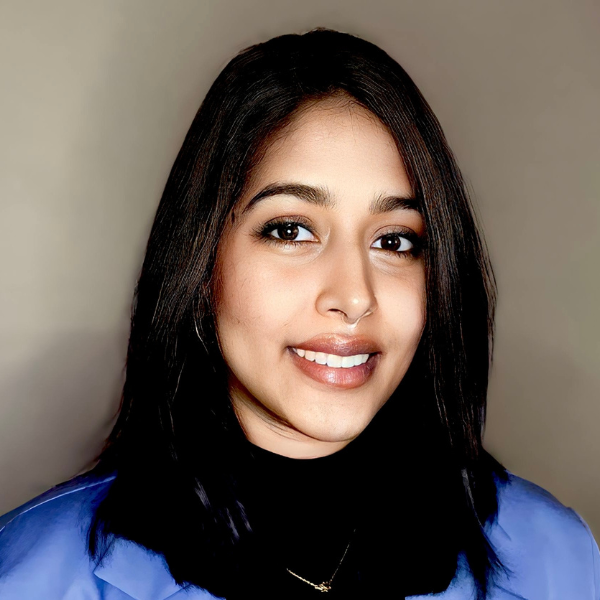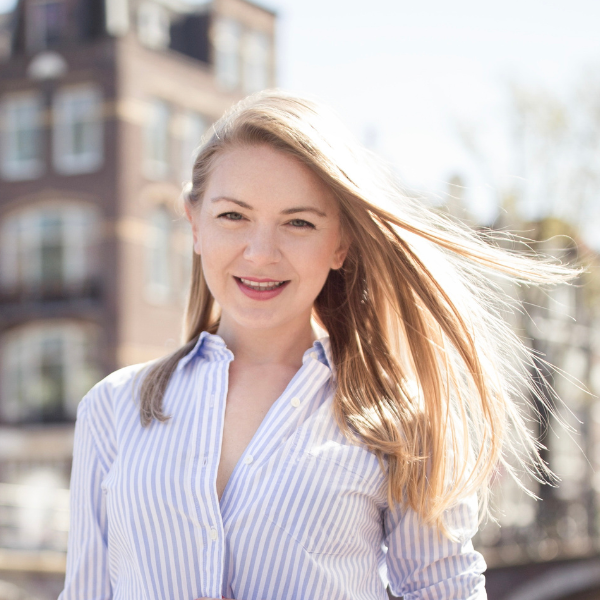With my broader and deeper knowledge of the financial world and how different sectors within the industry operate, I am now able to think more strategically and contribute to decision-making within the central bank.
Varushka Singh

Tell us a bit about yourself.
I am a quant with 11+ years of experience looking at multiple asset classes, such as fixed-income, currencies and corporate credit, across developed and emerging markets. My experience lies in conducting high-quality research and analyses of domestic and international financial markets.
As an extrovert, the part of my job that I enjoy the most is building and maintaining relationships with stakeholders in the banking and asset management sectors. Through this, I can gather market intelligence to support the formulation and implementation of monetary policy.
What made you want to embark on the INSEAD Executive Master in Finance (EMFin) programme?
Over the span of my career, my perspectives on the financial markets have been largely limited to the context of South Africa. It has always been my desire, however, to be able to analyse South African markets with respect to what’s going on in the rest of the world.
At the same time, I also want to be able to effectively lead a world-class team that focuses primarily on market intelligence and surveillance. To do so, I knew that I would require a broader and deeper knowledge of the financial world, how different sectors within the finance industry operate and sound leadership skills.
I believed that by being exposed to INSEAD’s world-class faculty, who possess technical knowledge and experience of a much wider financial landscape, I would be able to gain a new outlook on the financial world along with real-world application skills. I also hoped that I would be able to hone my leadership skills by learning from the experiences of my classmates as well as sharing my own.
How did you know that INSEAD would be the right choice for you?
After comparing a couple of Master’s in Finance programmes, I found that INSEAD’s EMFin programme offered the most flexibility for a working professional.
I also felt that among all the programmes on offer, EMFin best complemented my quantitative skills. This was an important factor because, as much as I have enjoyed being technically involved in projects in some of the biggest investment banks in South Africa as well as the South African Reserve Bank, I really wanted to look at opportunities in more strategic roles within the finance space.
I appreciated how the EMFin programme furnishes an individual with the knowledge and skills to be part of decision-making teams in business.
In addition, the faculty members’ profiles were extremely impressive with years of experience not only in academia but within industry as well. The programme also targeted the kind of finance leaders that I felt I could benefit from exposure to.
Was your programme funded by your company?
My company sponsored a portion of my fees and I received the INSEAD EMFin Scholarship for Diversity as well as the INSEAD EMFin Scholarship for Achievement. These helped to alleviate the financial pressure, especially in light of South Africa’s volatile currency. This allowed me to stay focused and really experience the programme in its entirety.
How would you describe your experience at INSEAD?
Starting my studies again after a decade, and in a new country, initially felt daunting. However, faculty members were extremely helpful and friendly. Our programme manager was also approachable, organised and always willing to assist.
I have gained so much respect for the EMFin lecturers, who are so knowledgeable and experienced, and above all, passionate about teaching us how to think strategically. Their passion for finance was contagious, which made the sheer volume of retaining what was covered enjoyable.
In terms of my fellow participants, the cohort was made up of people from a diverse array of backgrounds, ethnicities and professions. Besides being extremely friendly and humble, they were also curious, hard-working and highly accomplished in their respective fields.
That really brought the group discussions to the next level. We were able to leverage each other’s strengths to expand our perspectives and I see our friendships continuing beyond the classroom even after the programme.
The experience in Singapore, which is not only beautiful but a global financial centre, over those two weeks was phenomenal. It was the first time I visited an Asian country and Singapore has set a very high bar – from the food to the people to the programme. I also really enjoyed the campus, which is beautifully designed and conveniently situated to all necessary amenities.
Any advice on how to make the most out of the programme?
Preparation is a huge part. Digging deeper into the readings helped me to ask better questions in class. I also think that approaching the EMFin lecturers for context on certain concepts was something that helped me to stay up to speed.
Beyond what is learnt in the classroom, you also have access to career advisors, as well as a wide network of alumni. Building rapport with the relevant people to guide me in my career path whilst harnessing lessons learned in class is how I made the most of my programme.
Have you been able to use what you have learnt at INSEAD in your work?
I believe that my enhanced leadership skills have helped me in shaping both colleagues' and direct reports’ thinking of financial markets and the finance industry as a whole.
With my broader and deeper knowledge of the financial world and how different sectors within the industry operate, I believe that I am now able to think more strategically and contribute to decision-making within the central bank.
To provide an example, the way that I think about markets has always been forward-looking, from an analytical perspective of the macroeconomic environment. Since returning to work, my thinking of financial markets has evolved into a more strategic one, from the aspect of decision makers.
I feel that I have also been able to contribute more to conversations in new spaces such as equities rather than just in the fixed-income environment, which is where my focus was previously.
How did you find the way the course was organised?
Despite the intense time frame, I found the modules to be well organised. They were structured in a way that really allows you to take your existing knowledge of finance and finesse it to the next level.
I really enjoyed the experience of meeting my cohort in person and getting to know everyone in and out of the classroom. There was never a dull moment and the learning experience and discussions were nothing short of enlightening.
What was it like juggling between work, life and studies?
When I was accepted into the programme, I communicated accordingly with my manager. This allowed me to plan well and maintain balance. My days begin a lot earlier and a to-do list is vital. I use it as a guide to what needs to be prioritised during work hours so that I do not cut into my study time and vice versa.
Making time for exercise and eating healthy helped me, especially with the travelling and exposure to differing climates. I was fortunate to have the understanding of my manager at work, the emotional support of my friends and family, and a great synergy among my current cohort. Collaboration on all fronts really helped me to attain balance.
Where do you hope to see yourself in five years’ time?
Within the next five years, my primary professional objective is to develop an expertise in the transformative global finance sectors – specifically sustainable finance. The skill sets that I have acquired via the EMFin programme will accelerate my transition to roles that specialise in communications, such as investor relations or C-Suite (executive) advisory, where I can dynamically assess these relatively newer financial concepts.
As I continue to upskill and build a global network, I also see myself advancing in advisory roles where I am involved in projects that actively implement ESG metrics, encourage responsible investing, and pursue the highest standards of investor relations and business strategies.
Any advice to people out there who are interested in joining the EMFin programme?
EMFin hosts many calls during the application period so it may be helpful to get onto those calls to gain clarity about the programme.
You can also get in touch with EMFin alumni in your country and have in-person conversations about what to expect. This will help you know what to expect with regards to practical matters such as travelling and accommodation, as well as how to make the most of the programme.
The programme is an investment and commitment of time and money. So it’s important that you do your research and make an informed decision that makes sense for you and your career.




